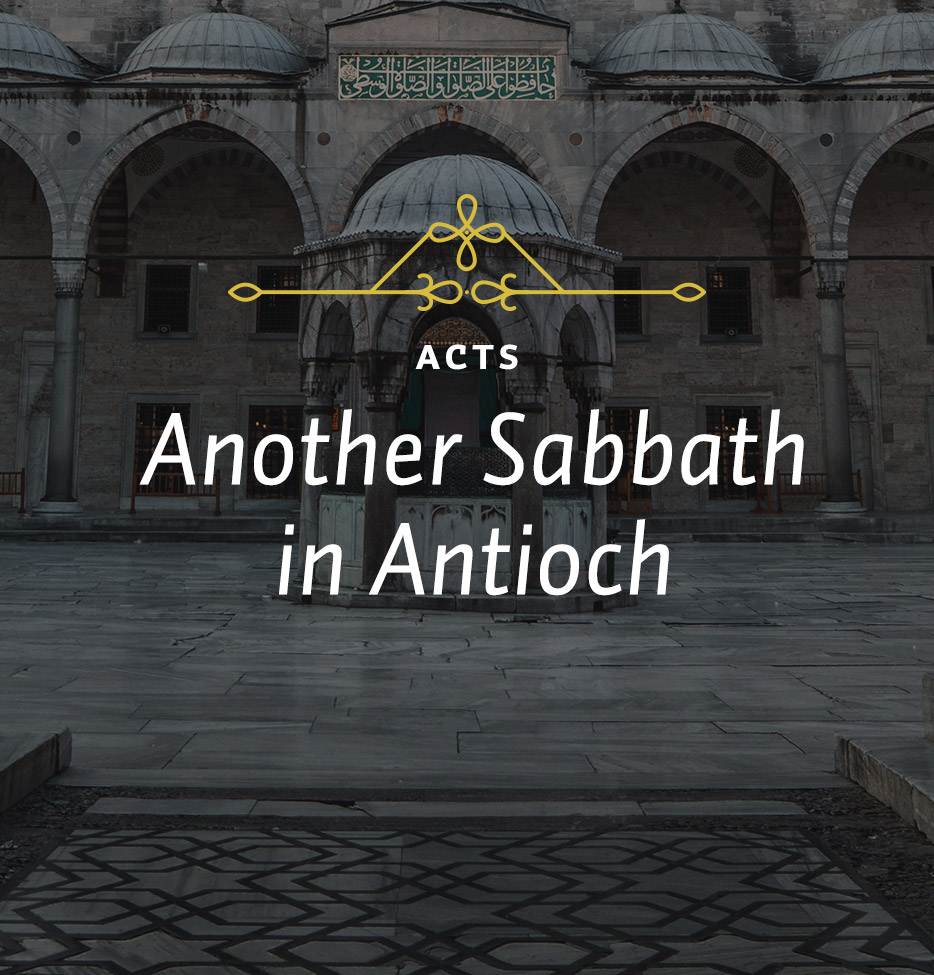The wonderful thing about this is that when the Gospel was proclaimed to the Gentiles, they believed it. We are told a number of important things about their response.
First, when the Gentiles heard Paul’s announcement “they were glad and honored the Word of the Lord” (v. 48). I think that means that they believed and obeyed it. The fifth of the Ten Commandments says, “Honor your father and your mother” (Exod. 20:12). One thing that means is to obey them. So when we are told that these Gentiles honored the Word of the Lord, this must mean at the very least that they obeyed it. The Word called for faith in Christ. So they obeyed God and believed on Jesus.
Second, we are told that “the Word of the Lord spread through the whole region” (v. 49). This must mean that they became witnesses as soon as they were converted. Since most of those converted were Gentiles, this became a largely Gentile mission.
It is an incidental point here, but one not lightly to be passed over, that when Luke says, “The Word of the Lord spread through the whole region,” he is being quite accurate in describing this community. The historian William Ramsay has pointed out that an inscription was discovered in Antioch describing a centurion who was assigned to this city as a “regional centurion.” Ramsay shows that this word does not just denote a general area, as if we were saying “the neighborhood.” Rather, it was a technical term, the “Region of Antioch.” The centurion was appointed to be in control of this “region” and was therefore called a “regional centurion.” So when Luke says, “The Word of the Lord spread through the whole region,” it shows that he knew what he was talking about and was getting his terms exactly right.1 This is where the Gospel spread, and it spread by those who came to believe on Jesus during this first great week of Paul’s preaching.
In the middle of those two statements, between the words that say they “honored the word of the Lord” and the words that imply that they took that word to others, we read, “and all who were appointed for eternal life believed.” Isn’t it interesting that we should have this statement of the doctrine of election that those who believe are those who are appointed to eternal life by God— right in the middle of this great evangelistic story? There are people who see this as a contradiction. They cannot imagine how anybody can be an evangelist if God appoints people to eternal life by deciding who will be saved, and then saving them. The argument goes, “If God is going to save certain people, God will save them regardless. What I do doesn’t matter. Or, if it depends on me, then it depends on me and you must not talk about election.”
Actually, it does not work that way. Those who have had the greatest faith in God’s electing power are also those who, by the grace of God, have proved to be the greatest evangelists. Virtually all the great missionary pioneers were believers in election. “Why did they go out to evangelize, then, if they believed God was going to save people anyway?”
That isn’t quite the way to put it. If God is going to save someone, God will save them. That is true. But it is not quite correct to say that God will save them anyway, because when we say, “God will save them anyway,” we mean that God will save them apart from our (or another’s) witness. And that is not true. The God who appoints the ends also appoints the means, and the means He has appointed in the evangelization of other people is our witness.
We are to take the Gospel into all the world. But, as we go, we are to know that God will work through that witness to bring to faith those He has appointed.
I sometimes say I do not know how you can do it any other way, at least not in a thinking manner. Suppose it does not depend on God; suppose it depends on you. Suppose people are saved because you are eloquent or because you have the right answers or because you happen to be in the right place at just the right time entirely apart from God’s election. I do not know how anybody can live with that because, if that is true, it means that if you do not have the right answers, if you are not in the right place, if you do not present the Gospel in just the right way, then these people will perish—they will go to hell—and it will be your fault. As I say, I do not know how anybody can live with that.
On the other hand, if you believe that God has appointed some for eternal life and that, as you testify, God will use that testimony to bring those persons to faith, the burden is removed and witnessing becomes what it was meant to be: a joy, as it obviously was for Paul and Barnabas. Persecution? Yes, they had that. The very last verses speak about it. But in spite of the persecution, a church was founded and it was not subdued. On the contrary, it prevailed and went on to become one of the truly great churches of the ancient world.
1W. M. Ramsay, St. Paul the Traveler and the Roman Citizen (London: Hodder and Stoughton, 1895), 102-104.






